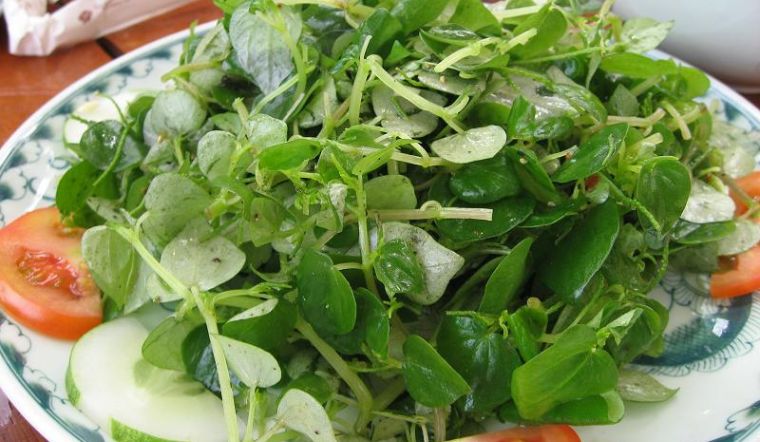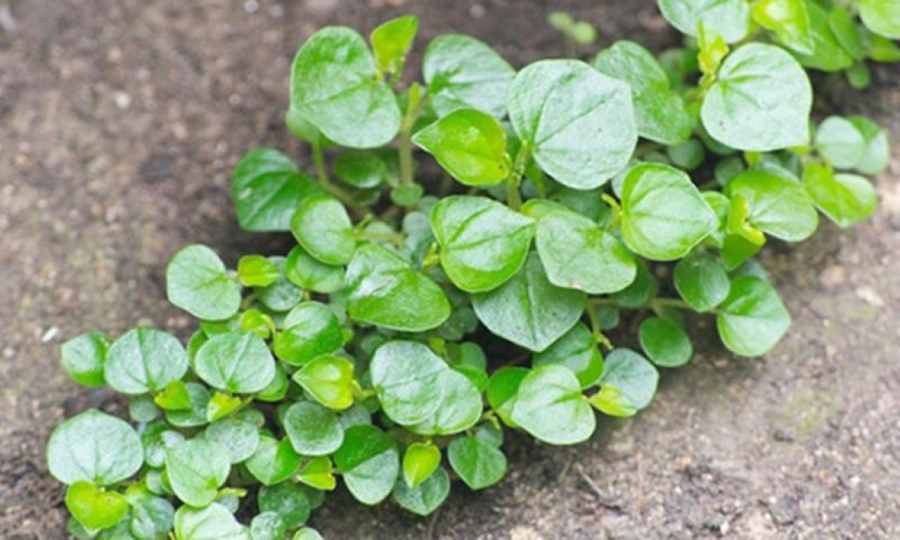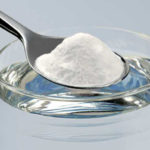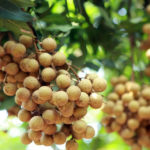According to Infonet, according to Vu Quoc Trung (Hanoi Eastern Medicine Association), cang cua vegetables grow wild and have many different names depending on the region, such as rau tieu, don buot, qui cham thao, thich cham thao, cuong hoa thao or rau don kim.
In the past, these vegetables grew in moist areas, corners of gardens, crevices, moldy walls, and damp areas. People used to remove them as weeds because they didn’t taste good.
Nowadays, cang cua vegetables have become a favorite dish for many people, and the price is quite high. People can use cang cua vegetables to make salads, salads, soups, or they can directly extract the juice.

Cang cua vegetables used for salad
In Eastern Medicine, cang cua vegetables have cooling properties, sour and spicy taste, which helps nourish yin, promote blood circulation, detoxify, cool down the body, and improve digestion and urination. Nowadays, cang cua vegetables can be used when experiencing respiratory infections, hepatitis, gastritis, and colitis.
In modern medicine, scientists have discovered that cang cua vegetables are rich in potassium. Specifically, 100g of cang cua vegetables contains 277mg of potassium, 224mg of calcium, 62mg of magnesium, and 5.2mg of vitamin C. In addition, this vegetable also contains a lot of water, minerals, vitamins, and carotenoids.
Cang cua vegetables also contain Peperomin E, which helps prevent the development of cancer cells. Adding cang cua vegetables to daily meals is also an effective way to inhibit the harmful effects of free radicals in the body.

Cang cua vegetables
Eating cang cua vegetables helps prevent cardiovascular diseases and strong arteriosclerosis due to its high fiber content. Minerals such as potassium and magnesium are good for blood pressure control, reducing cholesterol levels, lowering blood sugar levels, and preventing complications of cardiovascular diseases.
Cang cua vegetables are also good for bone development, used to treat osteoporosis in adults and prevent rickets in children. Cang cua vegetables also contain beta-carotene (precursor of vitamin A) which is good for vision.
Note: Cang cua vegetables promote diuresis, contain a lot of water, so it is not advisable to eat them in large quantities at night. People with allergies, asthma, or a history of asthma should avoid eating them. People with cold body and cold hands and feet should be cautious when using this vegetable.



































